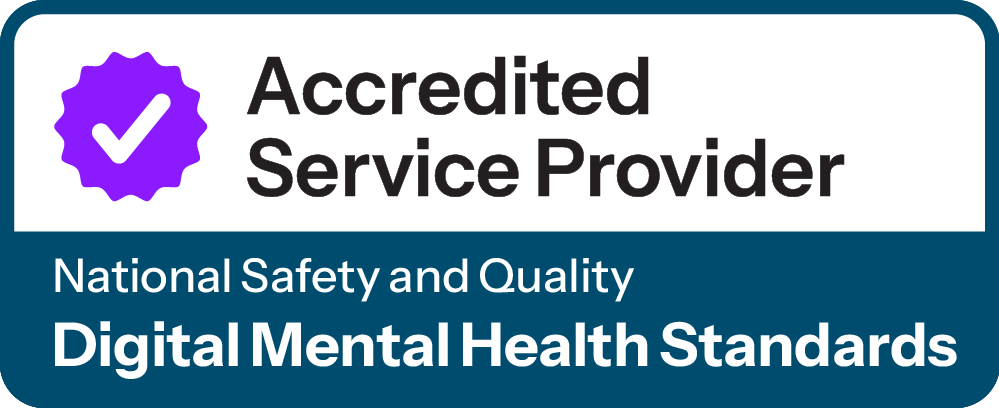Social media is an integral part of young people’s lives, a resource for education, social connection, news and entertainment. Social media also plays an increasing role in accessing mental health information, support and resources.
Our research aimed to understand how young people are using social media specifically for mental health support, what influences their engagement with content, and what this means for mental health service providers.
2,078 young people (aged 16-25) from across Australia took part in the research, including young people from major cities, regional, rural and remote areas.
Key findings




What young people are looking for
Young people cite a range of motivations for using social media to seek out mental health support.
72% say they are looking for practical advice about how to cope with challenges and 71% are looking for reassurance - information that makes them feel like they’re going to be okay.
More than two-thirds (69%) of young people are looking for information about specific mental health conditions such as depression and anxiety, and 65% are interested in making connections with other people who have experienced the same thing. For example, some young people expressed interest in online forums where participants could share their experiences of coping with mental health challenges as an LGBTIQ+ young person.
In addition to using social media as a complementary resource, 45% of young people turned to social media because they didn’t want professional help, and 44% because they didn’t have access to professional help

Preferred platforms
TikTok, YouTube and Instagram dominate, accounting for over 70% if young people’s preferred social media platforms. Young people are as likely to turn to their favourite platform for mental health information as they are to search on Google.
Types of mental health content
Young people view a broad range of content types as useful in supporting their mental health and wellbeing, including calming and uplifting content, accessible tips and coping techniques, awareness-raising content, content sharing lived experience, and information about specific mental health conditions.
Pathways to professional support
Two-thirds (66%) of young people said that viewing mental health content had made them more aware of their own mental health and wellbeing. 47% of young people said that they used social media to find information about how to get professional support, and 40% said they’d sought professional help after engaging with mental health content.
“Being able to read or watch about people in my situation sometimes reassures me. Being able to gain more information about how I’m feeling just enables me to be calmer.”
(Male, 21, rural area)
“I will look for infographics that detail out how to use certain therapeutic techniques... I also look for stories that real people have shared on what has helped them.”
(Female, 23, major city)
“Groups/pages specifically for people with certain mental health conditions or diagnoses have been incredibly helpful... to simply get validation that I am not the only one.”
(Female, 21, major city)
Young people's concerns about social media
Young people using social media for mental health support are often well aware of its limitations.
Participants demonstrated a high level of awareness of the risks of social media, including the addictiveness of some platforms, the variable quality of content, and challenging social situations. The addictive nature of some social media emerged as the leading concern. Young people also questioned the role of social media as conduits of serious information and concerns about privacy

Trusting mental health information online
Young people displayed a healthy level of caution and scepticism when assessing the trustworthiness of mental health information on social media, although younger participants were less skilled in detecting misinformation




Reimagining social media for mental health support
Young people are discerning about mental health information found on social media, often frustrated by its shortcomings and the platforms hosting it. They believe a safer online environment requires addressing design features, content quality and user education.
Platform safety features:
Among the key proposals participants outlined to address the safety of social platforms were tools to better manage what they see, by filtering or blocking
particular types of content.
Preventing addiction
While young people want relevant, engaging content in their social media feeds, more is not always better. Participants saw a potential benefit to inbuilt platform tools to assist them in managing their time online.
Content moderation:
Many young people advocate for platform measures to reduce the spread of such content, and to introduce tools to enable filtering of content, especially to
protect vulnerable users from harmful content.
“I love being able to control my privacy setting, as it makes me feel more secure. It makes me feel safe.”
(Male, 17, major city)
“Setting limits or making it harder for people to spend so much time on screens..”
(Female, 16, regional area)
“There should be content filters on all applications”
(Female, 17, major city)
Want to learn more? Download the research reports
In addition to the full report, we have also produced a range of briefs that explore specific themes that emerged during the research. Click on a brief below to download.
Further submissions and information
- Press release
- Submission to the Joint Select Committee on Social Media and Australian Society. by ReachOut Youth Advocates, August 2024
- Inquiry into social media impacts on Australian society. Collaborative submission from ReachOut, Beyond Blue and Black Dog Institute, July 2024.











